Turning 40 marks an important milestone in your health journey. As your body changes, so do your nutritional needs. With the right vitamins, you can ensure that you’re keeping your body in top shape, boosting your energy, and staying ahead of any age-related challenges. Here are 14 vitamins that are especially important for those over 40.
1. Vitamin D

As we age, our ability to absorb vitamin D from the sun decreases, making supplementation more crucial. Vitamin D is not only vital for bone health but also plays a role in regulating immune function. Without enough of it, you may face an increased risk of osteoporosis and fractures, which are common after 40. The right amount of vitamin D can help keep your bones strong and improve muscle function.
Many people don’t realize that vitamin D also supports a healthy mood and mental clarity. Studies have shown a link between low vitamin D levels and symptoms of depression. According to the National Institutes of Health (NIH), adults over 70 need 800 IU (20 µg) of vitamin D daily to maintain bone health and prevent deficiency. Getting enough vitamin D can boost your mood and cognitive function, two key aspects of well-being after 40. If you’re feeling sluggish or a bit off mentally, it may be time to check your vitamin D levels.
2. Vitamin B12
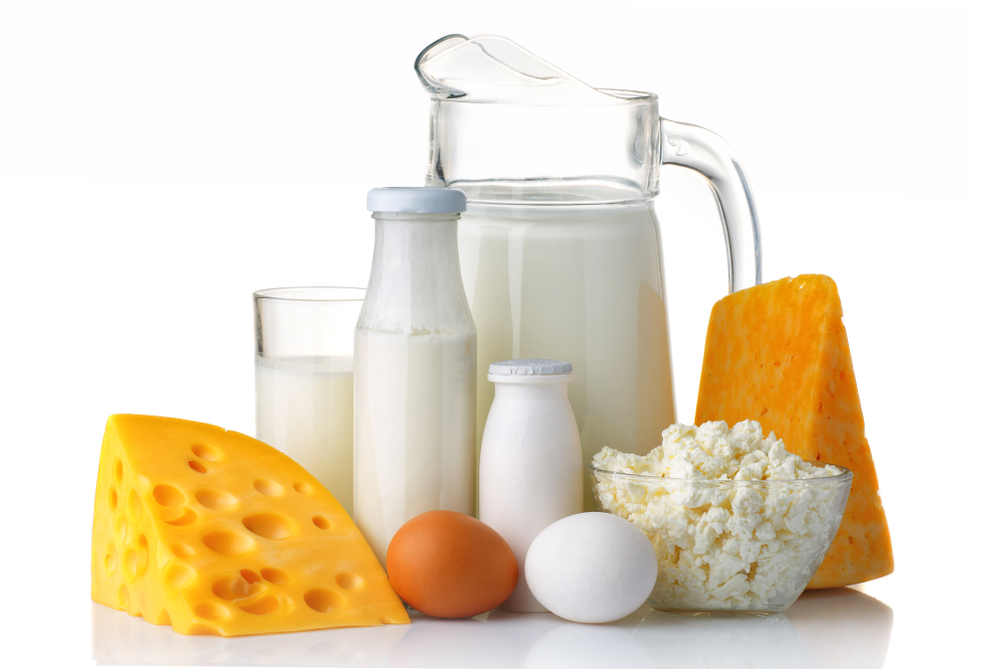
Vitamin B12 absorption becomes less efficient as you get older, which can lead to fatigue, memory problems, and even nerve damage. This vitamin is essential for maintaining energy levels and neurological function. A deficiency can result in feelings of weakness, numbness, and a general sense of sluggishness. Given how important it is for the proper functioning of your brain and blood cells, B12 supplementation can make a noticeable difference after 40.
While B12 is found in animal products, vegetarians and vegans are particularly prone to deficiencies. It’s also common in individuals with gastrointestinal issues, such as acid reflux or Crohn’s disease. If you find yourself forgetting things or struggling with concentration, B12 might be the missing piece to your mental sharpness. According to the NIH, adults over 50 should meet their B12 needs through fortified foods or supplements due to age-related absorption decline. Talk to your healthcare provider about adding it to your routine if you’re over 40.
3. Vitamin C

Vitamin C is widely known for boosting the immune system, but its benefits go far beyond that. As you age, the skin loses collagen, leading to wrinkles and sagging. Vitamin C is crucial for collagen production, making it an excellent choice for maintaining youthful skin. It also supports the health of your gums, teeth, and even your eyes, which can face increased strain after 40.
Vitamin C also acts as a powerful antioxidant, helping to protect your cells from oxidative damage caused by free radicals. This protection is particularly important as you age, as free radical damage contributes to aging and chronic diseases. Since your body can’t store vitamin C, it’s essential to include it regularly in your diet or as a supplement. According to the NIH, adults need 75–90 mg daily, with higher requirements for smokers or those under stress. You might be surprised at how much better your skin looks with a little extra vitamin C.
4. Vitamin A
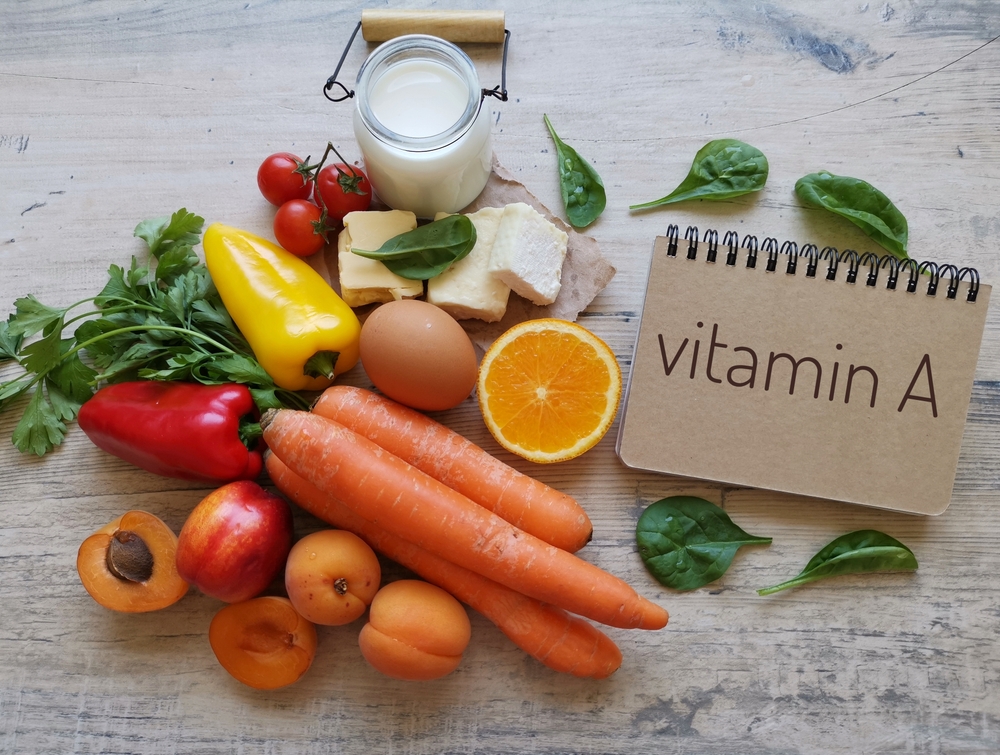
Vitamin A is essential for maintaining good vision, especially as age-related macular degeneration becomes a concern after 40. It also plays a key role in immune function and cell growth, helping your body repair itself. As you get older, your skin may also begin to lose its natural glow, and vitamin A can help with that too by encouraging healthy skin turnover. If you want to reduce fine lines and prevent age spots, this vitamin is a must.
What’s even more surprising is that vitamin A can also help your body detoxify. It supports liver function by clearing out toxins that accumulate over time. If you’re concerned about your liver health or how your skin is looking, adding vitamin A to your routine could provide the support you need. According to the NIH, adults need 700–900 µg RAE daily, with caution advised against excessive supplementation due to toxicity risks. And remember, it’s best absorbed with some healthy fats in your meals.
5. Vitamin K2

Vitamin K2 is one of those vitamins that people don’t talk about enough, yet it has a significant impact on bone health. It helps regulate calcium in the body by directing it to the bones and teeth while preventing calcium buildup in soft tissues like arteries. After 40, your bones naturally start to lose density, and vitamin K2 plays an essential role in preserving bone strength. Without it, you may be more vulnerable to fractures and bone density loss.
On top of its bone health benefits, vitamin K2 also contributes to heart health by supporting the proper functioning of the vascular system. Studies show that it may reduce the risk of arterial calcification, a major contributor to cardiovascular disease. Given its crucial role in both bone and heart health, vitamin K2 deserves more attention as you move past 40. Look for it in foods like fermented vegetables and certain animal products or consider taking a supplement.
6. Folate (Vitamin B9)

Folate, or vitamin B9, is an essential nutrient that plays a key role in red blood cell formation and proper brain function. While many people associate folate with pregnancy, its benefits go beyond reproductive health. As we age, our risk for cognitive decline increases, and folate has been shown to support cognitive function and memory. Additionally, it plays a part in mood regulation, helping to reduce symptoms of depression and anxiety, which are common after 40.
Folate also contributes to heart health by lowering homocysteine levels, a compound that can lead to cardiovascular disease if it accumulates. So, if you’re looking to support both brain function and heart health, folate is a top contender. You can find folate in leafy greens, citrus fruits, and beans, or consider a supplement if you’re not getting enough through diet alone. It’s a small addition to your routine that can have a big impact on your overall health.
7. Vitamin E
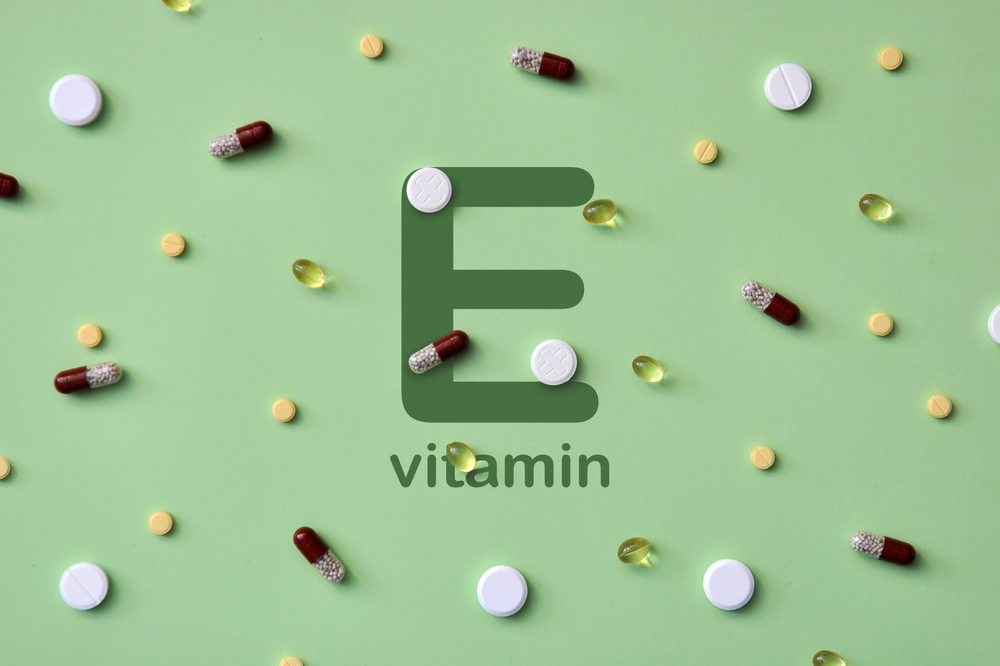
Vitamin E is a potent antioxidant that helps protect cells from oxidative damage, which is especially important as your skin and other organs age. It also promotes healthy circulation, supporting the delivery of oxygen and nutrients to vital areas of your body. For skin health, vitamin E can help reduce the appearance of scars, wrinkles, and sun damage. If you’re dealing with skin irritation or inflammation, vitamin E can be a soothing and effective solution.
Beyond skin benefits, vitamin E plays an essential role in heart health by helping to prevent the oxidation of LDL cholesterol, which is a major factor in the development of heart disease. Given the increased risk of cardiovascular problems after 40, vitamin E is a must-have nutrient for protecting your heart. It can be found in nuts, seeds, and leafy greens, but supplementation is often necessary for those who don’t get enough from food. Adding vitamin E to your routine might be the boost your health needs.
8. Magnesium

Magnesium is involved in over 300 biochemical reactions in the body, making it an essential mineral for maintaining overall health. After 40, magnesium becomes especially important for maintaining muscle function and preventing cramps. It also supports heart health by regulating blood pressure and contributing to healthy blood vessels. If you’re experiencing muscle tension or irregular heart rhythms, magnesium could be the key to relieving these symptoms.
Magnesium also has a calming effect on the nervous system, which can help manage stress and improve sleep quality. Many people struggle with sleep disturbances as they age, and magnesium supplementation can promote relaxation. If you find yourself tossing and turning at night, magnesium could be the missing link to a better night’s sleep. Incorporating magnesium into your daily routine can have both physical and mental benefits as you age.
9. Zinc

Zinc is a trace mineral that plays an important role in immune function, wound healing, and cellular growth. As you age, your immune system weakens, and zinc helps to boost your body’s defenses against illnesses. It also promotes healthy skin and can reduce inflammation, which becomes a bigger concern after 40. If you’re noticing more skin issues or frequent colds, zinc might be the support your body needs.
Zinc also contributes to hormonal balance, which is essential for both men and women as they approach middle age. It can help regulate the levels of hormones that control metabolism, energy, and even mood. If you’re feeling sluggish or moody, zinc supplementation could provide the boost you need. It’s a relatively small nutrient with a significant impact on your overall well-being.
10. Omega-3 Fatty Acids

Omega-3 fatty acids are essential fats that your body cannot produce on its own, yet they are critical for maintaining cardiovascular health, reducing inflammation, and supporting cognitive function. As you get older, your heart and brain become more vulnerable to age-related changes, and omega-3s help protect both. They’ve been shown to improve cholesterol levels and reduce the risk of chronic diseases, such as heart disease and Alzheimer’s. If you’re not already consuming omega-3-rich foods like fatty fish or flaxseeds, consider adding a supplement.
These fats also have a significant impact on your joints and muscles, helping to reduce stiffness and discomfort. After 40, joint pain and muscle inflammation become more common, and omega-3s can ease these symptoms. Whether you’re looking to improve your heart health, brain function, or flexibility, omega-3s are an essential part of a healthy aging routine. Make sure you’re getting enough, either through your diet or a high-quality supplement.
11. Biotin

Biotin, also known as vitamin B7, is commonly associated with hair and nail health, but it also plays an important role in energy production and metabolic function. As you age, your body’s ability to absorb nutrients decreases, which can lead to deficiencies. Biotin is crucial for converting food into energy and supporting healthy skin, hair, and nails. If you’re noticing thinning hair or brittle nails, biotin could be a helpful supplement to consider.
Aside from its beauty benefits, biotin also plays a role in supporting blood sugar control. As you approach your 40s, maintaining healthy blood sugar levels becomes increasingly important, and biotin can help regulate this. Many people report improved skin texture and hair growth with biotin supplementation. Given its wide range of benefits, it’s a great vitamin to add to your routine after 40.
12. Iodine
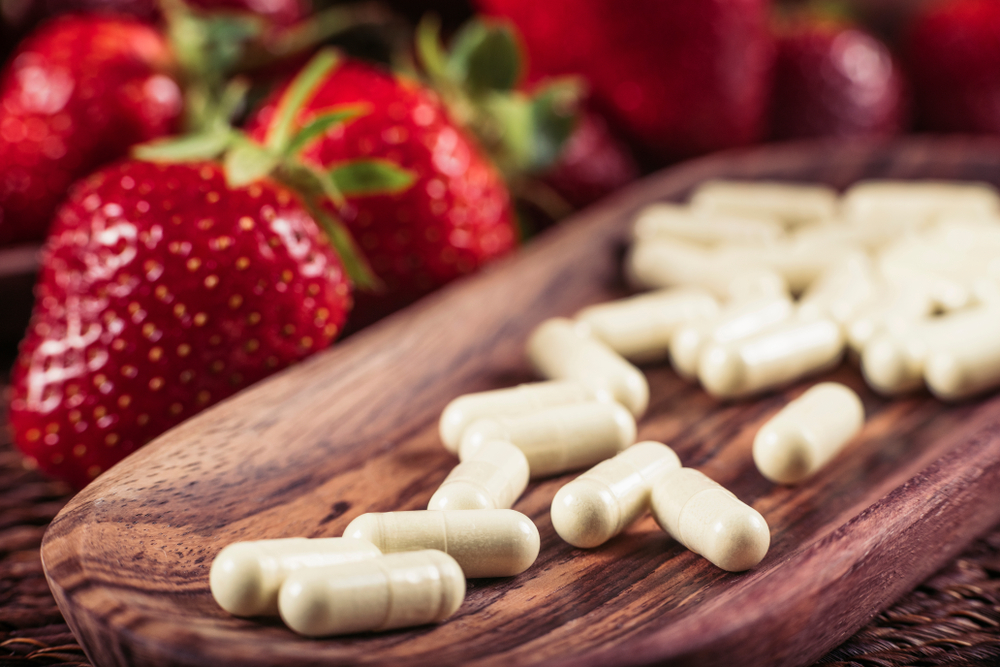
Iodine is a trace mineral that supports thyroid health, which is crucial as your metabolism naturally slows down with age. A well-functioning thyroid helps regulate your energy levels, metabolism, and overall vitality. After 40, it’s common for thyroid function to decline, which can lead to weight gain and fatigue. Iodine supplementation can help ensure your thyroid is working at its best, preventing these symptoms from interfering with your daily life.
In addition to supporting your thyroid, iodine also plays a role in maintaining healthy cognitive function and a strong immune system. An iodine deficiency can lead to cognitive issues and weakened immunity, both of which become more of a concern as you get older. If you’re not getting enough iodine from foods like seaweed or dairy, a supplement can provide the boost you need. Don’t overlook this essential nutrient as you move past 40.
13. Coenzyme Q10 (CoQ10)
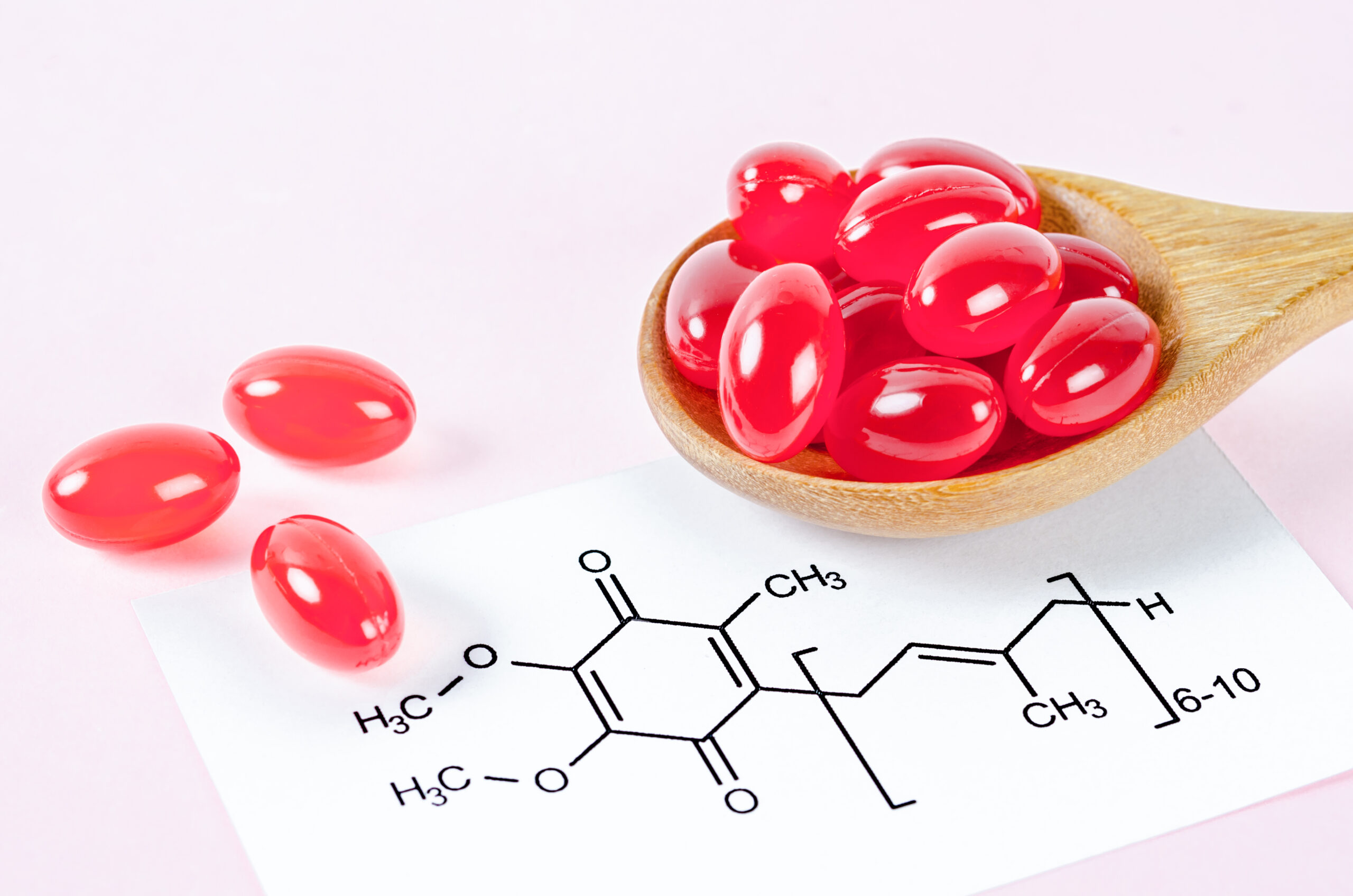
CoQ10 is a powerful antioxidant that plays a vital role in energy production at the cellular level. As you age, your natural levels of CoQ10 decrease, leading to reduced energy and stamina. This can leave you feeling fatigued and sluggish, making it difficult to keep up with everyday activities. Supplementing with CoQ10 can help restore your energy levels and improve physical performance.
Beyond energy production, CoQ10 also contributes to heart health by helping to maintain healthy blood pressure and cholesterol levels. It has been shown to protect against oxidative stress and support cardiovascular health, which is especially important as you age. If you’ve noticed a decline in your energy or overall vitality, CoQ10 may be just what you need to get back on track. Consider adding it to your regimen for improved health and stamina after 40.
14. L-carnitine
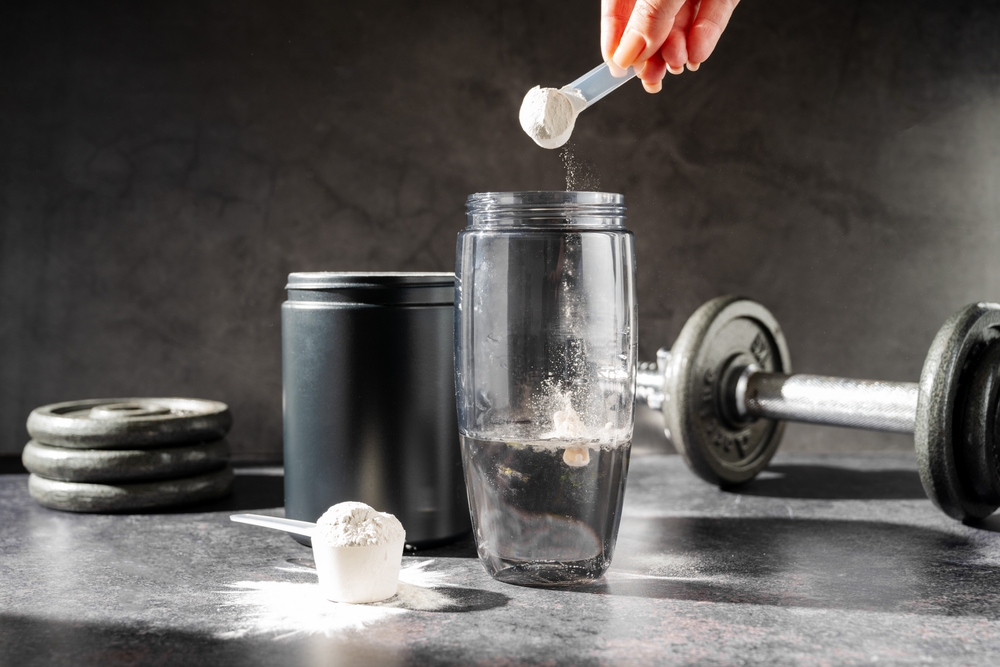
L-carnitine is an amino acid that helps your body turn fat into energy, making it an excellent supplement for those looking to maintain a healthy weight as they age. It’s particularly beneficial for individuals over 40, as your metabolism naturally slows down over time. By boosting your body’s fat-burning ability, L-carnitine helps you stay lean and active. If you’re struggling to maintain a healthy weight or energy levels, L-carnitine could be the perfect solution.
This supplement also has the added benefit of supporting brain function and memory. Studies suggest that L-carnitine may help improve cognitive performance, which is a crucial aspect of healthy aging. It also promotes recovery after exercise, reducing muscle soreness and improving endurance. Adding L-carnitine to your daily routine can help you maintain both physical and mental vitality well into your 40s and beyond.

Abisola is a communication specialist with a background in language studies and project management. She believes in the power of words to effectively connect with her audience and address their needs. With her strong foundation in both language and project management, she crafts messages that are not only clear and engaging but also aligned with strategic goals. Whether through content creation, storytelling, or communication planning, Abisola uses her expertise to ensure that her messages resonate and deliver lasting value to her audience.


